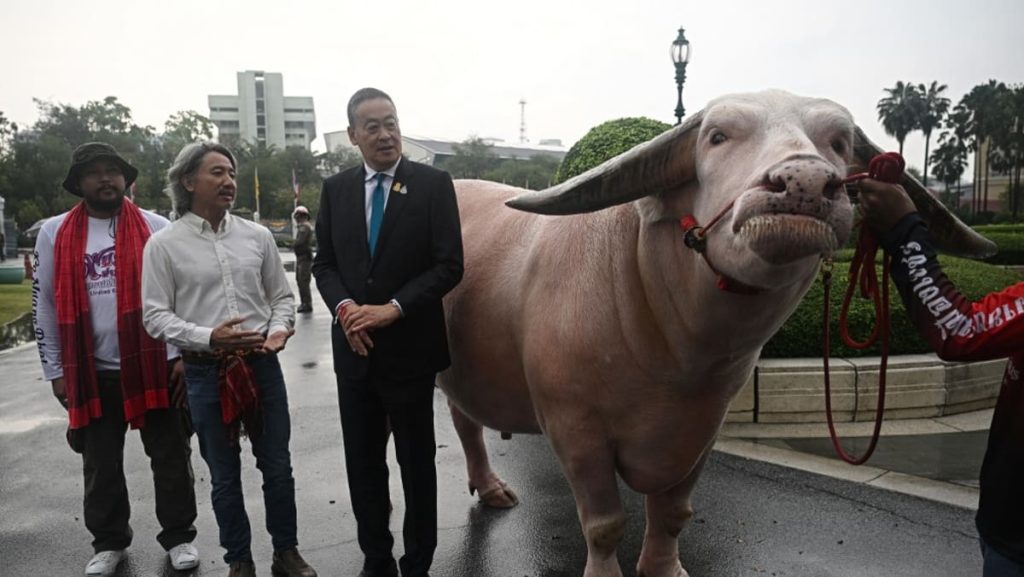Water buffalo are a common sight in the Thai countryside, where they are highly valued as farm animals due to their strength and reliability. These animals are often used for various agricultural tasks such as plowing fields, pulling carts, and carrying heavy loads. In addition to their utility, water buffalo are also appreciated for their beauty and uniqueness, with albino specimens in particular being highly prized for their rarity.
Albino water buffalo, with their distinctive white coloring and pink eyes, stand out against the typical black or brown hues of their counterparts. These rare animals are considered special and are often treated with great reverence by their owners. In Thai culture, albino water buffalo are believed to bring good luck and prosperity, and are sometimes used in religious ceremonies or festivals as a symbol of purity and blessings.
Due to their scarcity, albino water buffalo are highly sought after by collectors and breeders. These individuals are willing to pay a premium price for the chance to own one of these unique animals, which are seen as a status symbol and a sign of wealth. The demand for albino water buffalo has led to a thriving market for these creatures, with breeders working to produce more albino offspring to meet the growing interest in these prized animals.
Despite their rarity and value, albino water buffalo face some challenges in terms of health and well-being. Their lack of pigmentation makes them more susceptible to sunburn and other skin conditions, requiring extra care and protection from their owners. Additionally, albino water buffalo may face discrimination or mistreatment due to their unusual appearance, with some people viewing them as abnormal or undesirable.
To help protect albino water buffalo and promote their conservation, efforts are being made to raise awareness about these unique animals and their importance in Thai culture. Conservationists are working to educate the public about the value of albino water buffalo and the need to preserve their genetic diversity for future generations. By highlighting the beauty and significance of these rare creatures, advocates hope to inspire greater appreciation and respect for albino water buffalo and their role in the cultural heritage of Thailand.
In conclusion, water buffalo are an integral part of life in the Thai countryside, serving as essential farm animals and beloved companions to their owners. The albino water buffalo, with their striking white coloring and symbolic significance, hold a special place in Thai culture and are highly prized for their rarity and beauty. While facing some challenges due to their unique characteristics, efforts are being made to protect and conserve these special animals for future generations to appreciate and enjoy.














